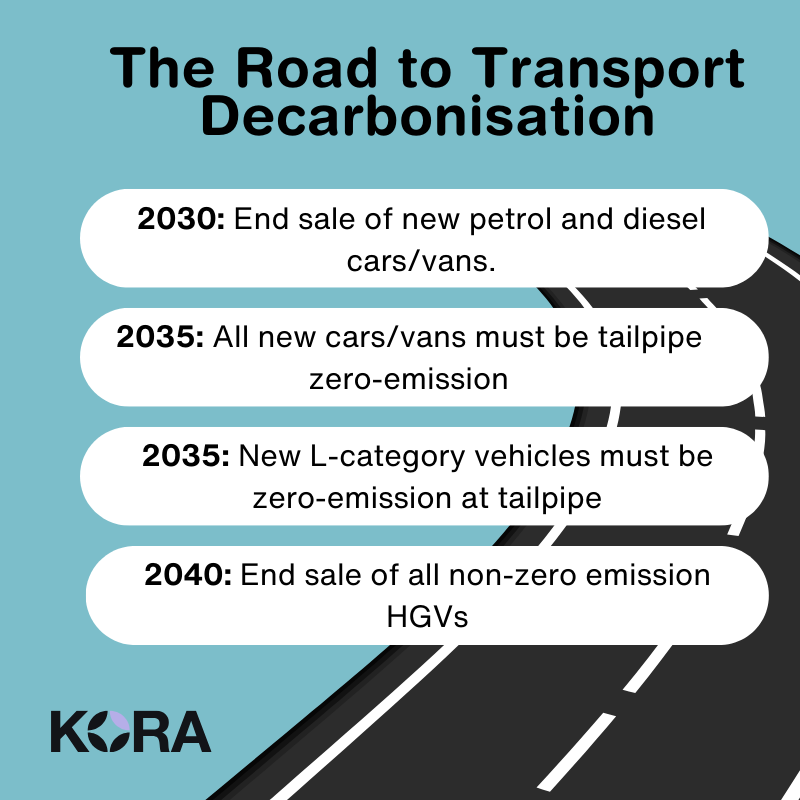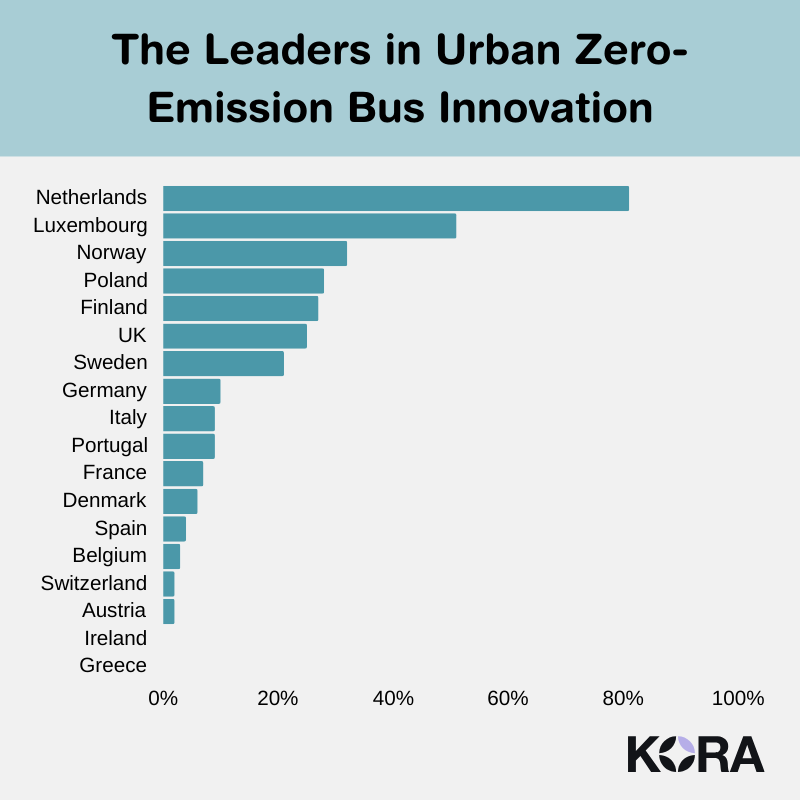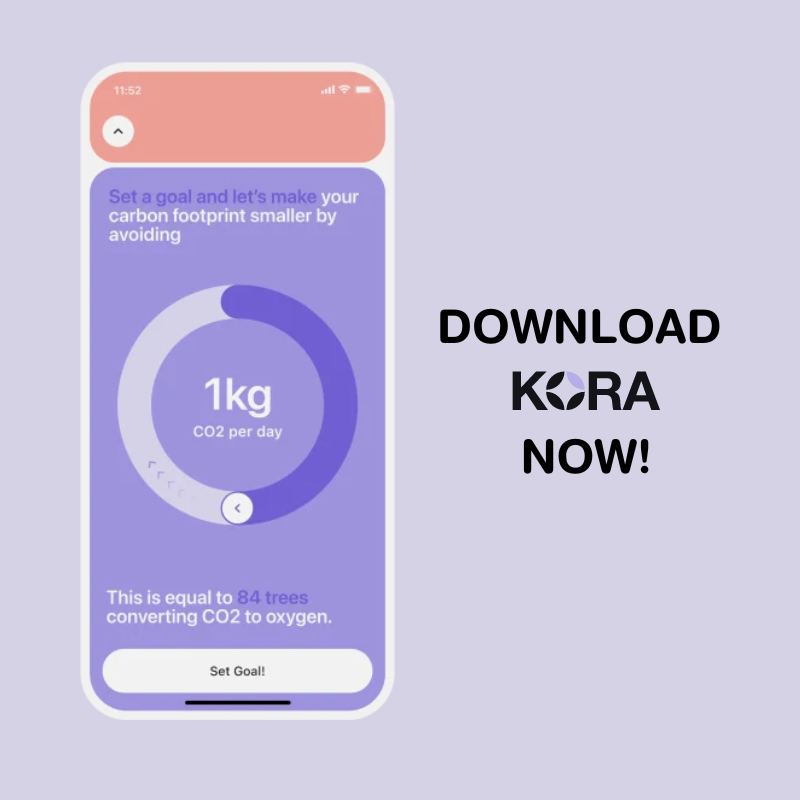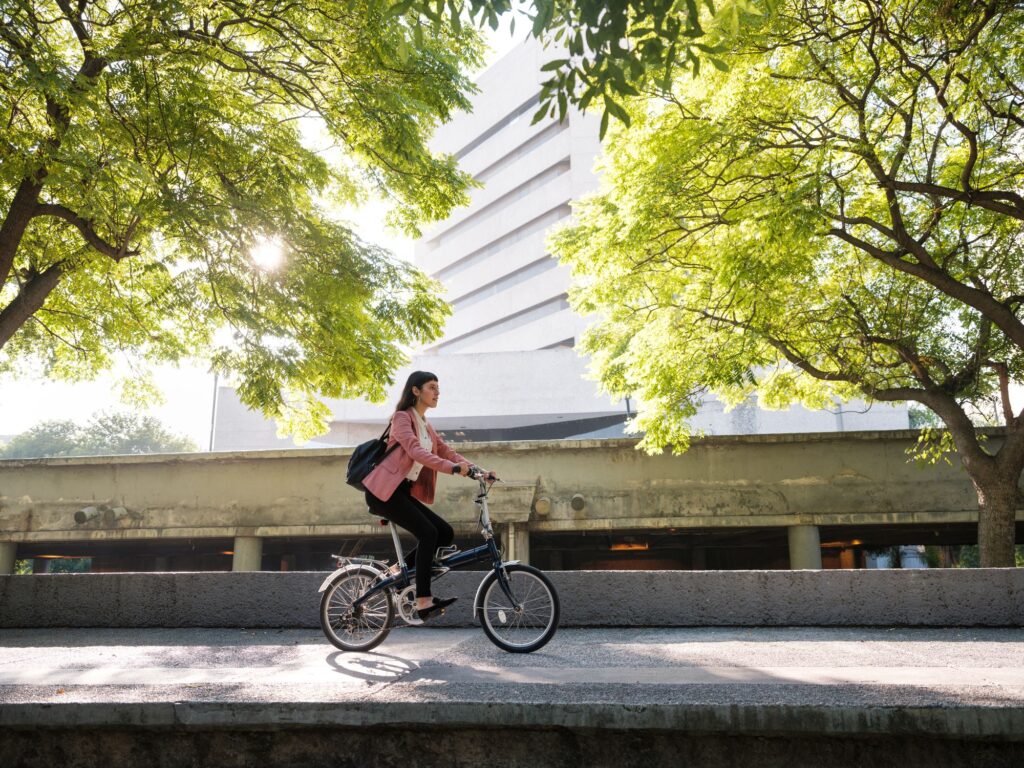Transportation is unquestionably one of the pillars upon which modern civilisation stands. With its ability to connect countries and continents, people and cultures, transport has allowed us to travel to practically every corner of the globe, and enabled creators to sell their products across the world. Transport networks are also a lifeline for many, providing access to key public services like healthcare and education, as well as work.
However, for all of the ways that modern transportation has improved our quality of life, the reality is that our reliance upon it has turned it into one of the largest culprits for polluting our planet – accounting for a whopping 25% of Europe’s total greenhouse gas emissions. However, while many of us are already aware that most common modes of transportation are big polluters, in a lot of circumstances giving them up isn’t really an option. After all, we need to be able to visit friends and family, get to work and school and go to the supermarket, our GP’s office and so on. So, with this in mind, how can transport be made more sustainable, and what sustainable initiatives can we adopt to make our transport habits more green? We answer all of this and more below.
What is Transport Sustainability?
Transport sustainability refers to efforts to reduce the negative impact of traditional forms of transportation upon the environment through energy efficient, low or zero-emission and affordable alternatives. These alternatives are electric vehicles (EVs) – which don’t emit polluting exhaust fumes, and instead can run on renewable energy sources – as well as vehicles that run on alternative fuel sources like hydrogen and biofuel. Sustainable transport also includes other modes of active travel like walking, cycling or scootering, or even taking public transport like the bus or train.
Why is Transport Sustainability So Important?
Because the volume of transport emissions we currently produce is so high, transport sustainability plays a crucial role in Europe’s long-term decarbonisation strategy, which aims to make the EU climate-neutral by 2050. It is only through the promotion of the cleaner, low and zero-emission modes of transportation that we mentioned above that we can hope to significantly reduce our emissions and get on the right track to meet this goal.
While meeting our decarbonisation objectives is the overarching goal of transportation sustainability, there are a wide range of impactful advantages that go hand in hand with adopting more sustainable modes of transport. Here are just a few ways that we can expect to benefit from making greener travel choices.

Improved Air Quality
Over 90% of the fuel used in many types of common vehicles still happens to be petroleum-based, the combustion of which is what leads to polluting emissions like CO2. By contrast, one of the immediate impacts of embracing sustainable transportation methods is the improvement in air quality. Research shows that even taking public transport over a personal vehicle can reduce harmful emissions by up to 45%. Reduced emissions from vehicles result in lower levels of pollutants in the air, leading to a healthier living environment. In particular, people living in urban areas, where air quality is often compromised, stand to benefit massively from the positive changes brought about by sustainable transport.
Less Traffic Congestion
A majority of us will have experienced the frustration of being stuck in slow-moving traffic during our morning commute or on the after-school run. As cities grow, so does the challenge of traffic congestion. Sustainable initiatives which promote the use of public transportation, cycling and walking can help significantly to alleviate this problem. By reducing the number of personal vehicles on the road, people will find that their commute runs much more smoothly, which will lead to less stress and time spent in transit as a result.
Future-Proofed Travel
All of the fossil fuels we use to power our vehicles are non-renewable, meaning that their supply is finite and will eventually run out. Naturally, continuing to rely heavily on these energy sources poses a massive problem looking forward, so switching to renewable fuel alternatives is imperative.
Fortunately, the electric vehicle industry is booming, with 21.6% of new car registrations being electric vehicles in the EU in 2022 – that’s around two million electric car registrations in one year! Similarly, on the public transport front, electric buses are majorly helping to reduce carbon emissions in major cities across Western Europe, with over half of European capital cities planning for exclusively zero-emission buses on their roads by 2040. The Netherlands in particular is leading the charge in this respect: under the Voluntary Agreement on Zero Emission Bus Transport, all new buses must use 100% renewable energy or fuel from 2025 onwards, and all buses must be fully emission-free by 2030. This movement towards renewable energy sources is a great step in the direction towards future-proofing our transportation.

Cost Savings
You might be surprised to learn that sustainable transportation options can also translate into cost savings for you! Electric vehicles, for instance, have lower operating costs than traditional petroleum-powered vehicles. Additionally, those who opt for public transport or shared travel alternatives (like carpooling) will ultimately save plenty on fuel, maintenance and parking expenses. These cost-effective alternatives are not only great news for your financial wellbeing, but also help to encourage a far more sustainable and equitable transport system.
How Can Businesses Support Sustainable Initiatives?
Now we know the ‘why’ of transport sustainability, it’s time to talk about the ‘how’. Playing a part in making the move towards more sustainable transport options isn’t simply the responsibility of the individual, and businesses can also make a contribution. As a business, one of the most impactful ways that you can show your commitment to a carbon-neutral future is through providing your employees with the support necessary to make greener choices and reduce their carbon footprints as a result. From a transport perspective, there are plenty of ways that you can integrate sustainable initiatives into your company culture:
- Cycle to work scheme or bike shop discount vouchers
- Flexitime schedule: enables employees to travel when the roads are quieter (great for cyclists) and allows them to build their working day around public transport timetables.
- Encourage staff to carpool and offer dedicated parking spaces to car sharers. You could even develop a web-based database to help employees see who they can travel to work with.
- Make remote working a part of your business operations, which cuts out on travelling to and from work altogether.
- Don’t drive when you can do it digitally: look into holding meetings and conferences online to save on travel.
- Offer tangible rewards to encourage staff to ditch driving into work in favour of walking, cycling or taking public transport. Rewards can be devised in-house, or you could work with a company like KORA who will do all of the hard work for you!
Improve Your Sustainable Development Goals with KORA
At KORA, we understand that transport sustainability won’t happen overnight, but if businesses work together to take action, we can make a real impact. That’s why we want to help make adopting green habits as straightforward as possible. As a collective of individuals passionate about fighting climate change and reaching the EU’s net-zero goals, our mission is to assist businesses in measuring and reducing their Scope 3 emissions through the incentivisation of employees using KORA tokens. Reducing your Scope 3 emissions will not only accelerate your company’s decarbonisation journey, but also comes with a number of other far-reaching benefits: improving your reputation, decreasing staff turnover, attracting new customers and even cutting costs.

Make a difference today by downloading the KORA app, or contacting us to book in for a free demo, and take the first step towards a more sustainable future for your business. Together, we can create a world where transportation not only meets our needs but also preserves the planet for future generations.




